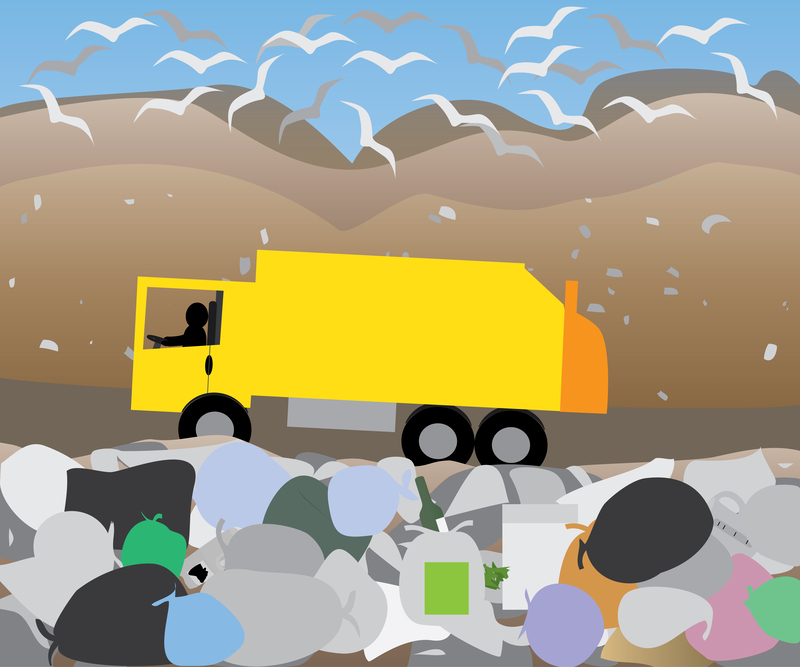Introduction to Affordable Bulky Waste Disposal
Dealing with bulky waste--those large household items and materials that cannot fit inside a standard bin--can feel overwhelming. From old furniture and mattresses to appliances and oversized garden waste, these items quickly accumulate and pose challenges for safe, legal and cost-effective disposal. Fortunately, there are numerous affordable methods for getting rid of bulky waste that ensure both environmental responsibility and budget-friendliness.
In this comprehensive guide, we'll explore the best practices and most affordable options for bulky waste disposal, providing expert tips and easy-to-follow solutions. Read on to discover innovative ways to clear out your home, garage or office without breaking the bank, while staying mindful of the planet.

What Is Bulky Waste?
Before exploring disposal methods, it's vital to understand what qualifies as bulky waste. Bulky waste typically refers to large items that you cannot dispose of through your regular curbside waste collection. Examples include:
- Furniture: sofas, beds, wardrobes, mattresses
- Household appliances: refrigerators, washing machines, ovens
- Large electronics: televisions, computers
- Outdoor items: sheds, garden tools, play equipment
- Construction debris: doors, windows, bathtubs
These items require special handling and disposal to ensure environmental safety and compliance with local waste regulations. Now, let's look at the most effective and affordable waste disposal methods.
Top Affordable Bulky Waste Disposal Methods
1. Municipal Bulky Waste Collection Services
Many local councils and municipalities offer bulky waste collection services, often at a minimal or no cost, especially for residents. These services typically involve:
- Scheduled curbside pickups on specific dates
- Booking in advance through a phone call or online portal
- Collection of specific item types (check your local guidelines)
Municipal services are often the most cost-effective solutions, as they are included in your taxes or covered by small administrative fees. Be sure to:
- Check what items are accepted (hazardous items may be excluded)
- Find out how many times per year you can book a collection
- Place items at the designated spot as instructed
Pro Tip: Some councils also offer seasonal "clean-up" days, which can be particularly useful for large clear-outs.
2. Waste Recycling Centres (Civic Amenity Sites)
Most communities have waste recycling facilities where residents can bring their bulky items free or for a nominal charge. These centres typically handle:
- Old furniture and mattresses
- White goods and electrical appliances
- Scrap metal
- Large garden waste
The advantage of using waste recycling centres is that much of your bulky waste can be appropriately sorted, recycled or upcycled, reducing landfill volumes. For affordable disposal, always check opening hours, acceptable items and any applicable fees before loading your vehicle.
3. Donate to Charity or Reuse Organizations
Not all bulky waste is destined for landfill. Many items still have useful life left! Charity shops, reuse centres, and online giving platforms may accept:
- Furniture and household wares
- Working appliances or electronics
- Bikes, sports equipment, and toys
Organizations like the Salvation Army, Goodwill, Habitat for Humanity, or local charities often offer free collection of large donations. This is not only cost-friendly but also benefits the community and the environment.
Online platforms like Freecycle, Craigslist and Facebook Marketplace are amazing for giving away unwanted bulky items, making reuse an easy and often instant solution.
4. Sell or Give Away Bulky Items
Turning your unwanted items into cash is another savvy, sustainable method of bulky waste disposal. Consider selling old furniture, appliances, or equipment through:
- Online marketplaces (eBay, Gumtree, Facebook Marketplace)
- Local second-hand stores or consignment shops
- Garage or yard sales
Not only does this reduce disposal costs, but it may recoup some expenses, making this an affordable solution with added benefits.
5. Hire a Specialist Bulky Waste Removal Service
For situations where municipal or charity options aren't viable, bulky waste removal companies offer convenient, door-to-door collection and disposal. Look for licensed, fully insured firms for environmental peace of mind.
- Get quotes from multiple companies for the best price
- Request details of where and how items will be disposed or recycled
- Ask about discounts for multiple items or combined loads
While a paid service can be pricier, it saves time and heavy lifting. Some companies even provide same-day disposal. It's smart to use these only when free or low-cost options are impossible.
6. Rent a Skip or Dumpster
A skip (dumpster) rental is useful for large home refurbishments or extensive decluttering projects. Skips are available in various sizes, and prices can be kept low by:
- Sharing with neighbors for a group disposal (cost split)
- Booking off-peak collection days for lower rates
- Sorting and recycling as much as possible beforehand
Always check your local regulations for placement permits and be aware of items that are prohibited (e.g., hazardous materials).
7. Repurpose and Upcycle Large Waste
If you enjoy creative projects, consider repurposing or upcycling your bulky waste. Popular ideas include:
- Turning old wooden furniture into garden planters
- Transforming a washing machine drum into a fire pit
- Using pallets for DIY shelving or storage
This method not only reduces waste, but adds value to your home or community.
How to Reduce Bulky Waste in the First Place
The most effective and affordable bulky waste disposal method is prevention. Reducing the volume of items you need to discard can save money and effort down the line. Here's how:
- Buy quality, long-lasting products that won't need frequent replacement
- Maintain and repair furniture and appliances when possible
- Opt for modular or multi-use furnishings that adapt to changing needs
- Consider second-hand shopping for items with proven durability
- Only buy what you truly need
Tips for Managing Bulky Waste Efficiently
- Plan ahead: Schedule municipal pick-ups and charity donations well in advance.
- Disassemble items: Breaking down furniture or appliances can make them easier and cheaper to transport or dispose of.
- Check for hazardous parts: Remove batteries, fluids or electrical components as required by disposal regulations.
- Sort your waste: Separate metal, wood, electronics and textiles so they can be recycled efficiently.
- Label items clearly: This helps collectors identify reusable or recyclable materials.
Environmental Considerations in Bulky Waste Disposal
Sustainable bulky waste disposal is essential for minimizing your environmental footprint. When possible, opt for methods that prioritize recycling and reuse:
- Choose licensed, accredited waste carriers to prevent illegal dumping or fly-tipping
- Ask as many questions about the final destination of your items as needed
- Demand documentation or proof of correct disposal if using a private company
The more you can extend the life of your bulky items or ensure they're properly recycled, the less waste ends up in landfills or pollutes the environment.

Frequently Asked Questions (FAQ) about Affordable Bulky Waste Disposal
What is the cheapest way to dispose of bulky items?
The most affordable options are usually municipal collection services or direct donation to charity. For reusable items, these methods can even be free.
Can large items be left on the curb for free pickup?
Only if this service is offered by your local council. Illegal dumping is subject to hefty fines--always follow your area's regulations.
Are there restrictions on what can be disposed of via affordable collection services?
Yes. Most municipal or charity collections only accept certain types of bulky waste, and may not handle hazardous materials, construction debris, or commercial items.
What happens to bulky waste after collection?
Depending on the method, items may be recycled, refurbished, resold, or disposed of safely at landfill sites. Many companies increasingly prioritize eco-friendly solutions.
Conclusion: Choose the Right Affordable Bulky Waste Disposal Option for You
Whether you're tackling a major decluttering project, moving house, or simply want to get rid of an old fridge, there are affordable bulky waste disposal methods to suit every situation. From taking advantage of municipal services and charity collections to selling, donating or creatively upcycling, the key is planning ahead and matching your approach to your needs.
By following the tips outlined in this article and making environmentally conscious choices, you can keep costs low, reduce landfill waste and ensure your bulky items are disposed of responsibly.
Remember: Whenever possible, recycle and give new life to your large unwanted items--your wallet and the planet will thank you!
If you found this guide useful, feel free to share it with friends or bookmark it for future reference. A clutter-free home is just a few smart, affordable steps away!
